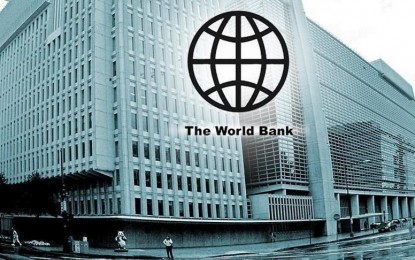MANILA – The World Bank, through an International Bank for Reconstruction and Development loan, is providing a USD700 million to strengthen the community resilience of 18 million households in the Philippines.
In a statement Friday, the World Bank said the amount is part of the USD874.35 million total project cost of the Philippines Community Resilience Project. The Philippine government will provide the remaining USD174.35 million.
The international lender said the Philippines Community Resilience Project will engage communities in identifying climate and natural hazard risks and developing resilience plans. Initiatives prioritized within these plans will receive implementation grants, with a particular focus on resilient community infrastructure and sustainable livelihoods.
“By empowering local communities to take the lead in building resilience against climate change and disaster risks, the Philippines is not only addressing immediate environmental challenges but also fostering a culture of proactive engagement and resilience,” said World Bank Division Director for the Philippines, Malaysia, and Brunei Zafer Mustafaoğlu.
“Communities play a critical role in preparing for and responding to disasters. Their ability to anticipate risks, organize themselves, and collaborate with local and national authorities is essential for effective climate change and disaster risk preparedness and recovery efforts,” Mustafaoğlu added.
Resilience investments for funding under the project may include flood and drought mitigation, landslide and slope protection, surge protection and breakwaters, windbreakers, and retrofitting of existing infrastructure to withstand extreme weather events.
The project will also support erosion control, agroforestry, and other nature-based solutions for ecosystem conservation, including community forests, wetlands, marshes, and waterways, erosion control, water conservation, and agroforestry.
It will provide technical support to community volunteer groups to implement and manage sub-projects.
This includes training and capacity building for local government units and community members to enhance their ability to plan and respond to climate challenges.
The project will prioritize 500 climate-vulnerable municipalities across 49 provinces in the Philippines.
These municipalities are selected based on their high poverty incidence and significant exposure to climate hazards.
The project will support 177 municipalities with an indigenous population of 10 percent or more, thereby aiding approximately 33 percent of the total indigenous population in the country.
To ensure that resilience efforts are inclusive and equitable, the project specifically targets vulnerable populations.
These include Indigenous People, women, and beneficiaries of the Pantawid Pamilyang Pilipino Program.
The Department of Social Welfare and Development will lead the project’s implementation through a community-driven development approach that focuses on the voluntary engagement of vulnerable citizens in poor communities.
The World Bank said this approach encourages their participation in local planning, budgeting, and subproject implementation processes to enhance the provision of basic needs and services.
“Investing in community-level resilience is crucial for a country like the Philippines that is highly vulnerable to climate change and natural disasters, as it safeguards lives, protects economic stability, and empowers local communities to recover swiftly and sustainably,” said Ditte Marie Fallesen, World Bank Senior Social Development Specialist.
“Ensuring community capacity and opportunity for participating in resilience planning is critical as communities are on the frontlines of climate and natural hazard risks, ” Fallesen added. (PNA)
